
Do you have what you need to make your garden grow?


Garden Center
Store Hours
Mon-Sat:
6:00am - 10:00pm
Sun:
8:00am - 8:00pm
Curbside:
09:00am - 6:00pm
Location
Popular at Your Garden Center
Trending Garden Supplies in May
Trending Live Plants
Garden Project Calculators
;Resize=(703,395.44))
Grass Seed Calculator
When you're ready to seed your lawn, our calculator helps you estimate the amount of grass seed you'll need to get the job done.
;Resize=(703,395.44))
Mulch Calculator
Enter your preferred material, the square footage and mulch depth of the coverage space for accurate results.
;Resize=(703,395.44))
Fencing Calculator
We'll calculate the amount of fencing you should purchase based on your property needs.
Shop Outdoor and Garden Brands
Frequently Asked Questions About Gardening
What planting zone am I in?
Check the USDA plant hardiness zone map, as planting zones have changed slightly over the years. Planting zones with higher numbers can plant earlier in the year. Increase your odds of successful gardening by choosing plants that are meant for your zone.
Can I just put seeds in the ground?
If the soil isn't frozen or cold, consider planting your flower, veggie, or fruit seeds directly into your garden. This is called the "direct sow" method. Plant after the threat of frost is gone for the season, as sprouts and seedlings can't weather those conditions. You can also start your seeds indoors if you'd like. Consult your seed envelope for how and when to sow seeds.
Do you carry organic seeds and plants?
We offer many organic gardening options, including organic veggie seeds and fruit seeds, as well as organic flower and herb seeds that are subject to availability. We also carry the organic fertilizer to feed your plants and the organic soil to plant them in.
Do I have to harden off my seedlings before planting them outside?
Yes, for best results, if you raised plants indoors from seeds in your own plant nursery, harden them before you transplant them. Hardening is the process of getting them used to outdoor life and the fluctuating spring weather. It slows their growth until they're strong and ready to take off during a spring warm front. Hardening also makes your plants more resilient to a sudden cold snap.
Can I strengthen my seedlings before planting them outdoors?
Get your sprouts used to breezy spring days and storms with a fan and keep fungus from growing in damp conditions. Set up an oscillating floor fan on low to mimic the wind. Just the gentlest breeze for several hours a day will do the trick. The stems and leaves will get used to blowing in the breeze and not snap when a gust comes through. If you don't set up a fan, your seedlings may be more sensitive to strong winds. Try to plant between storms.
Should I use peat moss starters or coir starters?
Seed starters, full of nutrients in pots or pellets, work for new and experienced gardeners alike. You don't have to use these starters if you're planting in soil, but you may want to. Starting seeds in peat pots works best for delicately rooted plants like cucumbers and eggplant, as well as flowers that need acidic soil. Some people prefer coir starters instead, as they have a neutral pH. Check what type of soil your plants need to help narrow it down, and chat with a garden center associate if you need more info.
Garden Project Ideas
The Home Depot Garden Center at Benton Harbor
Set Up For Springtime
On beautiful spring days, tidy the yard before everything blooms in earnest. Planning your garden lets you make the most of your time and space. Don't forget to clean the shed and sweep out the gazebo in preparation for spring, too. No matter which plants you need and what outdoor projects you choose to tackle, search for your local plant nursery and find that The Garden Center in Benton Harbor can help you enjoy your spring activities to the fullest.
Plant Hardiness Zones Explained
The first thing you should know when planting spring flowers, vegetables, and other seeds is your planting zone. Every location in the U.S. and its territories is sorted into blocks by climate. Find your zone on the USDA plant hardiness zone map and learn when to plant seeds.
For example, you could plant bell pepper seedlings outdoors in mid-March in Zone 10, but not until the end of May in Zone 4. For best results, choose plants in your zone number or less. In other words, a Zone 6 garden can support plants listed as Zones 1–6. The timeframe to direct sow outdoors in your garden is often around a month later than the indoor start date. Always read your seed packet for details. If you start them a little later than recommended, it's not ideal, but it will likely even out as time passes.
Gardening in Your Growing Zone
The Midwest is mostly Zones 6 and 7 throughout Indiana, Michigan, and Kentucky. You’ll find pockets of Zone 5 and stretches of Zone 4 in the Upper Peninsula. In Zones 5 and 6, the outdoor growing season doesn’t begin here until mid-March or even April, although you can plant some veggie seeds halfway through February. Warmer Zone 7 can start planting earlier, and Zone 4 much later on. Tomatoes, peppers, cucumbers, squash, and other classic garden crops will thrive in this region, and most of them can get an early jump on growing indoors before spring really moves in.
Also, check out cruciferous veggies and certain herbs if you're ready to get planting. This includes kale, broccoli, and cabbage. Greens like spinach, artichokes, and fragrant herbs, including parsley, basil, and oregano, also don't mind an early start. The main concern is waiting until the frost has passed for the season, so planting seeds outdoors as direct sow is later here compared to farther south.
Plant Seeds Outside With Direct Sow
Planting seeds with the direct sow method, right into the soil, is another option. It doesn't give you as much organized planning in terms of reliability and spacing compared to indoor starts. However, if you like to go with the flow, follow the instructions on your seed pack and try it out.
Prepare to deal with whatever hand nature deals you: You may have no germinating seeds. A critter could munch the tender seedlings for a snack. All the seeds you plant in each hole may sprout, so you'll need to spread them out later or choose the most robust sprouts to survive in a process called thinning. Flooding rains might disturb the ground and wash away the seeds. But if you're lucky, you'll get strong sprouts that are ready to grow all spring.
Start Seeds Indoors
If you'd like more control over your seedlings' journey or you're eager to get growing, start your seeds indoors in your own plant nursery. In general, you can plant seeds indoors about a month before you can do it outside. Like direct sow, you push the seeds into the soil as directed on the seed packet, but that's where the similarities end.
You're responsible for giving them quality substitutes for rain and sunlight. Keep your seeds warm with warming mats and grow lights, water them carefully with a mister or watering can, then thin them as they germinate in groups of three. Give them a boost with a gently blowing fan as they lengthen into sprouts if you'd like. Harden them off to get them used to outdoor conditions, then transplant them into your garden when they're big enough.
Transplant Young Plants Into Their New Homes
Carefully take your seedling out of the container. Turn it upside-down or sideways and gently squeeze the plastic to break the seal. If your transplant grew in the garden, leave plenty of room around the stem and dig deeper than you think with your garden trowel. You don't want to damage the roots. Put the plant in the new hole and make sure it's even with the surrounding soil.
Protect Your Garden With Mulch
Finish your flower bed with compost and mulch. Mulch keeps your soil from drying out and controls weeds. Compost enriches the soil so your garden can grow even better. It may help foster stronger plants that bear more flowers and fruit. Mulch and compost can be DIY creations, but you can also purchase them in-store. The next time you're looking for "mulch near me," stop by the Garden Center to get the right amount.
Greet the Spring
Don't miss a minute of growing season. Prepare to fertilize your lawn, plan your garden and landscaping, and browse The Home Depot nursery to find inspiration on what to plant when the weather warms. For those without lawns, consider adding artificial grass or a pellet grill to your outdoor space. Shop for the soil, seeds, and fertilizer you need in the aisles of your Benton Harbor Garden Center, online, or on our mobile app. Let's get growing together.
Nearby Stores
Find Another Store
317 Indian Ridge Blvd
Mishawaka, IN 46545
28.39 mi
Mon-Sat: 6:00am - 9:00pm
Sun: 8:00am - 8:00pm
1301 S Us Highway 131
Three Rivers, MI 49093
40.66 mi
Mon-Sat: 6:00am - 9:00pm
Sun: 8:00am - 8:00pm
6685 S Westnedge Ave
Portage, MI 49002
43.51 mi
Mon-Sat: 6:00am - 10:00pm
Sun: 8:00am - 8:00pm
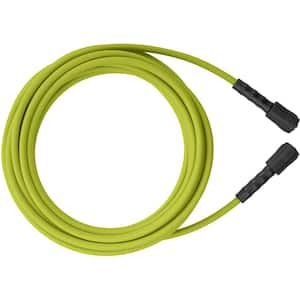
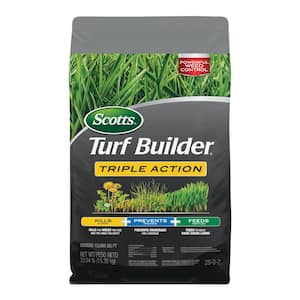
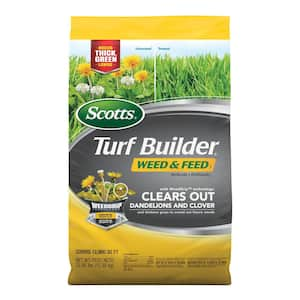
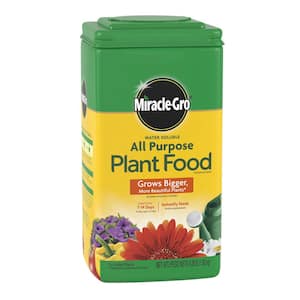
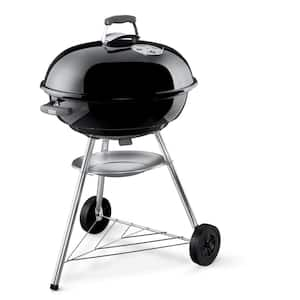
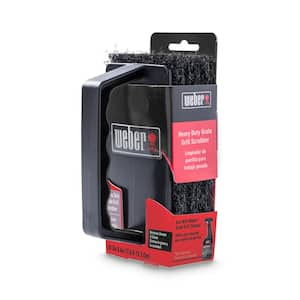
)
)
/17_514245_S_012_Product%20Image%20(square).jpg?im=Resize=(300,300))
;Resize=(300,300))
)
)
)
)
)
/2023_P2_Rain_Barrels_Product%20Image%20(square).jpg?im=Resize=(300,300))
)
;Resize=(300,300))
;Resize=(300,300))
;Resize=(300,300))
/12_SOIL_B_0420_Social%20media%20(square).jpg?im=Resize=(300,300))
;Resize=(300,300))
)
)
;Resize=(300,300))
;Resize=(300,300))
;Resize=(300,300))
;Resize=(300,300))
)
)
;Resize=(300,300))
;Resize=(300,300))
;Resize=(300,300))
;Resize=(300,300))
;Resize=(300,300))
)
/18Patio_Camden_Seagrass_5pcSeating_Planters_302468736_DTL3_L_Social%20media%20(square).jpg?im=Resize=(300,300))
;Resize=(300,300))
;Resize=(300,300))
;Resize=(300,300))
)
;Resize=(300,300))
;Resize=(300,300))
)
;Resize=(300,300))
)
.jpeg?im=Crop,rect=(363.69230769230774,1.2307692307692308,958.7692307692308,958.7692307692308);Resize=(300,300))
;Resize=(300,300))
)
;Resize=(300,300))
;Resize=(300,300))
)
;Resize=(300,300))
)
)
;Resize=(300,300))
;Resize=(300,300))
)
)
;Resize=(300,300))
)
;Resize=(300,300))
;Resize=(300,300))
)
)
;Resize=(300,300))
)
)
/Capello_Spring_Mum_10in_Social%20media%20(square).jpg?im=Resize=(300,300))
;Resize=(300,300))
)
)
;Resize=(300,300))
)
)
;Resize=(300,300))
)
)
;Resize=(300,300))
;Resize=(300,300))











































